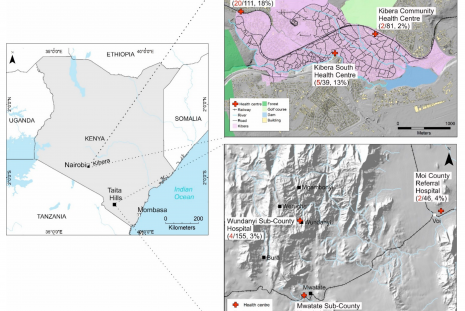Member of the Department Dr. Moses Masika recently published his work on exposure to Onyong-Nyong and Chikungunya virus in febrile patients of rural Taita-Taveta County and urban Kibera informal settlement in Nairobi as part of his PhD.
In his collaborative study with scientists from the University of Helsinki, Finland and Umeå University, Sweden, Dr. Masika and the research team noted several alphaviruses, such as chikungunya (CHIKV) and Onyong-nyong (ONNV), are endemic in Kenya and often cause outbreaks in different parts of the country. They assessed the seroprevalence of alphaviruses in patients with acute febrile illness in two geographically distant areas in Kenya with no previous record of alphavirus outbreaks. Blood samples were collected from febrile patients in health facilities located in the rural Taita-Taveta County in 2016 and urban Kibera informal settlement in Nairobi in 2017 and tested for CHIKV IgG and IgM antibodies using an in-house immunofluorescence assay (IFA) and a commercial ELISA test, respectively.
A subset of CHIKV IgG or IgM antibody-positive samples were further analyzed using plaque reduction
neutralization tests (PRNT) for CHIKV, ONNV, and Sindbis virus. Out of 537 patients, 4 (0.7%) and 28 (5.2%) had alphavirus IgM and IgG antibodies, respectively, confirmed on PRNT. The investigators showed evidence of previous and current exposure to alphaviruses based on serological testing in areas with
no recorded history of outbreaks.
For further details on this study, read the publication here

